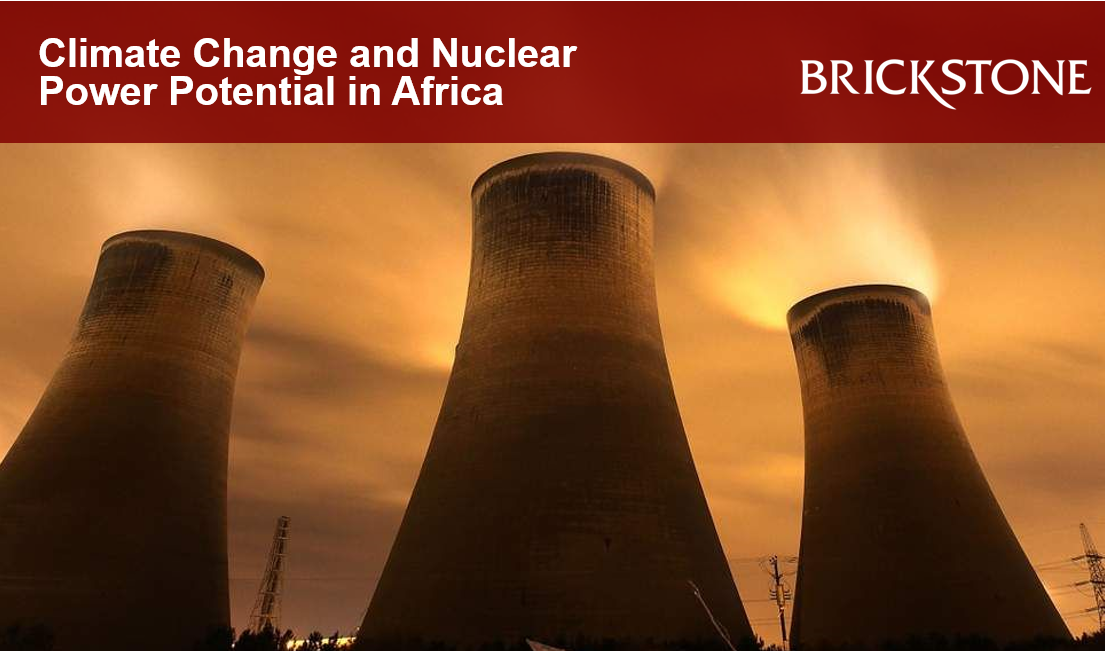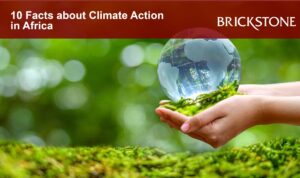Climate Change and Nuclear Power Potential in Africa
Climate change represents a major challenge in Africa, threatening the lives and livelihoods of over 100 million in extreme poverty. Despite contributing only a minute amount of global greenhouse gas emissions, the African continent suffers the deleterious effects of climate change to a disproportionate degree. This includes the exposure to exponential collateral damage, which poses risks to its economies, infrastructure investments, water and food systems, public health, agriculture, and livelihoods.
The need for ambitious climate action is heightened as a result of these heightened effects, and without drastic intervention and actions taken, climate change will remain an existential threat. In fact, it is projected to cause more devastating global consequences in the years to come.
As a way forward, experts have over the years identified the key drivers causing these planetary-scale changes, and as well, recommended various solutions to curb this situation. And core to these drivers and solutions is the need to substantially lower the volume of greenhouse gas emissions generated from fossil fuels through a clean energy transition. To achieve this, experts have sketched an optimistic portrait of nuclear power in the future of the continent’s power matrix.
This article by Brickstone reviews IAEA’s publication on climate change and nuclear power, highlighting its potential in Africa.
IAEA’s Publication on Climate Change and Nuclear Power in Africa
Alongside renewables, energy efficiency and other innovative technologies, nuclear energy can make a significant contribution to achieving sustainable energy goals and enhancing energy security.
The Supporting the Energy Trans`ition in Africa event came as the latest edition of the IAEA’s Climate Change and Nuclear Power report was published, featuring a chapter specifically focusing on nuclear power in Africa.
It says that “the emergence of large clean energy projects in the Middle East and North Africa region, including some landmark nuclear projects, is driving energy transformations in the region” but “unreliable electricity supply in sub-Saharan Africa is an impediment to economic development and employment and financial aid is critical to support the development of large infrastructure programmes, including nuclear projects”.
The report says: “Nuclear energy is gaining traction among the leaders of many African and Middle Eastern countries. In response to the climate emergency and other great challenges faced by this continent, such as those associated with economic stimulation and poverty alleviation, multiple Middle Eastern and African countries are increasingly integrating nuclear solutions in their economic, social and environmental strategies, as shown by the number of requests from IAEA Member States for Integrated Nuclear Infrastructure Reviews (INIR).
“This assistance programme, based on the IAEA Milestones Approach, is a holistic peer review of the national infrastructure needed for nuclear power, including the national policies, the legal and regulatory regimes, human resources, electrical grid infrastructure, suitable sites and supporting infrastructure. Out of the 34 INIR missions conducted in 24 Member States between 2009 and 2022, 9 of the INIR main missions and 2 follow-up missions were requested by African countries.”
The report says that 600 million people in Africa have no reliable source of electricity, with the World Bank reporting that in sub-Saharan Africa 80% of businesses suffer from power outages. It also notes that the demand for energy in Africa is growing twice as fast as the global average.
Egypt recently started construction of its first nuclear power plant – it plans four 1200 MWe reactors at El-Dabaa. “Egypt opted for nuclear power because it provides a steady source of energy that lasts for decades,” said Mohamed H. El Molla, Egypt’s Resident Representative to the IAEA.
South Africa, the only existing nuclear operator on the continent, is considering long-term operation of the Koeberg nuclear power plant as well as expanding its nuclear power programme. Ghana hosted an IAEA-led Integrated Nuclear Infrastructure Review mission in 2017 and Minister of Environment, Science, Technology and Innovation Kwaku Afriyie said: “Ghana is looking to introduce nuclear power to provide the necessary diversity of baseload to ensure energy security for our future demands.”
At the event, IAEA director general Rafael Mariano Grossi said that African countries considering nuclear power solutions could be assured “the IAEA will be with you every step of the way”.
He said: “Everywhere I am hearing this global conversation about energy security, climate change and nuclear power, and whether by virtue of changes in circumstance, climate or security needs, it is quite clear that nuclear power now has a place at the table. What I like about this discussion is that there is no discussion without Africa. The Africans have said themselves … ‘we need to contribute, and we need our own specific analysis of how this nuclear jewel is going to be used for African economies.’”
Henri Paillere, head of the IAEA’s planning and economic studies section said that international financing would be vital, especially for African countries who have seen their public finances worsen during the COVID-19 pandemic, making it hard for them to finance large infrastructure projects.
Read more here.






